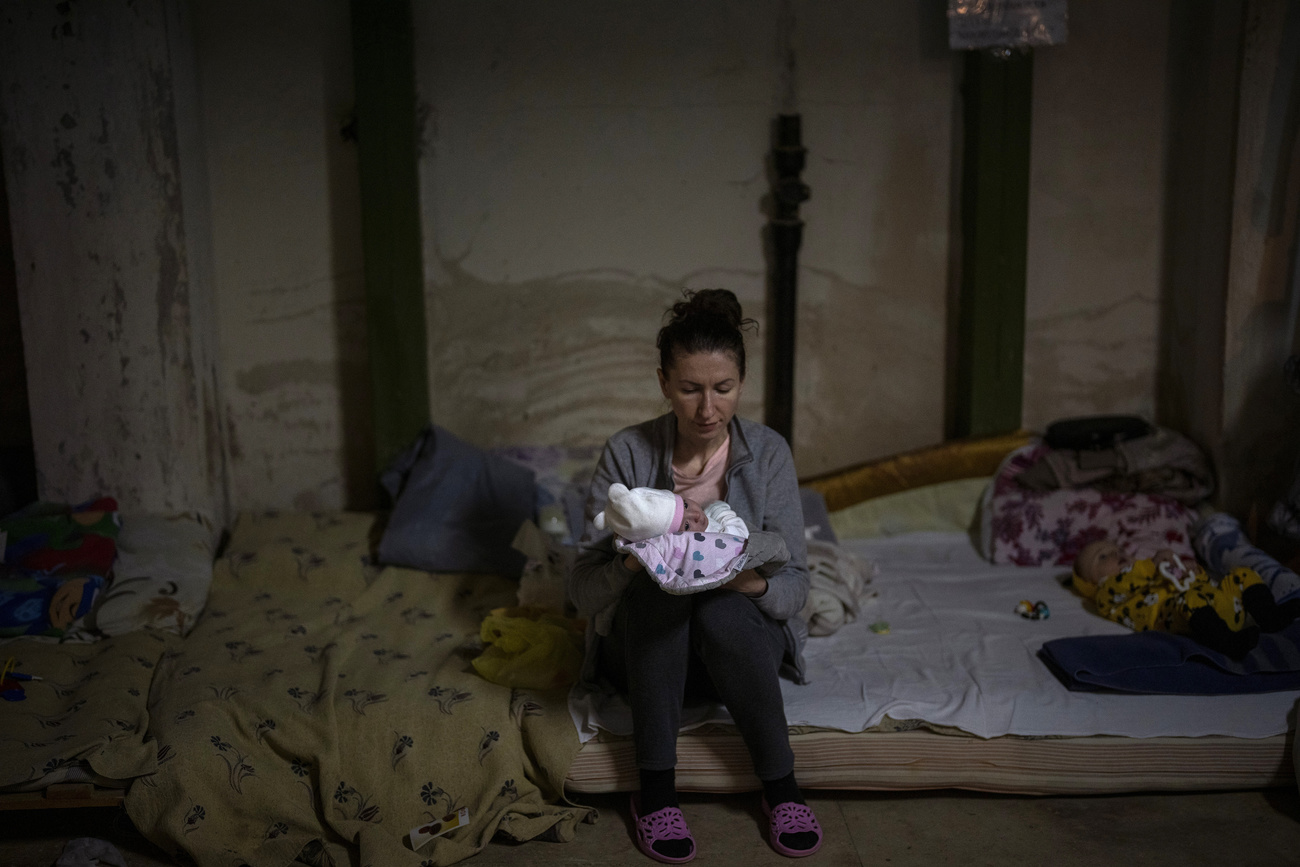
Aid agencies launch campaign to help Ukraine war victims

Swiss-based Red Cross agencies have appealed for CHF250 million ($273 million) to provide food, water and shelter to millions of people in Ukraine, where the humanitarian situation is "deteriorating rapidly", and to those who have fled abroad.
The International Committee of the Red Cross (ICRC) and the International Federation of the Red Cross and Red Crescent Societies (IFRC) – the world’s largest disaster relief network – issued the joint appeal as a huge Russian armoured column bore down on Kyiv, six days after Moscow’s invasion began.
“We need the funds in order to address the humanitarian needs which are already staggering – food, water, shelter, health care, psychological support – and they are growing by the hour,” Martin Schuepp, ICRC regional director for Europe and Central Asia, told a news briefing in Geneva on Tuesday.
A priority was to reach people detained during the conflict and the ICRC is in touch with all sides regarding visits to detainees, he said. All sides have an obligation to facilitate the return of dead bodies, and ICRC teams are ready to help but remain limited in their movement due to insecurity, he added.
There are already long-term disruptions to regular water and electricity supplies, and casualty figures keep rising as facilities struggle to cope, ICRC Director General Robert Mardini said in a press releaseExternal link.
Vulnerable people
The IFRC is focusing its aid on vulnerable and elderly people, including unaccompanied minors, single women with children and people with disabilities.
“A rapid response is needed to save lives,” said IFRC Secretary General Jagan Chapagain.
“In the middle of so much suffering, it is heart-warming to see the level of global solidarity,” he said in a statement.
Swiss Solidarity has launched a fundraising campaign to help cope with an expected humanitarian crisis in Ukraine. Donations can be paid via postal account 10-15000-6, adding the words “Crisis in Ukraine”.
In a first phase, the money will be used to help refugees in countries neighbouring Ukraine, notably in Poland. Swiss Solidarity works with charities and aid organisations, including Caritas, HEKS/EPER, the Swiss Red Cross, Helvetas, Medair, Médecins Sans Frontières and the Terre des hommes foundation.
If possible and if necessary, aid projects will also be supported in Ukraine.
The money goes exclusively towards humanitarian aid.
Swiss SolidarityExternal link is an independent foundation. It was born from a programme by the French-language public radio and is now the humanitarian arm of the Swiss Broadcasting Corporation, the parent company of SWI swissinfo.ch.

More
Aid agencies launch campaign to help Ukraine war victims

In compliance with the JTI standards
More: SWI swissinfo.ch certified by the Journalism Trust Initiative


















![The four-metre-long painting "Sonntag der Bergbauern" [Sunday of the Mountain Farmers, 1923-24/26] had to be removed by a crane from the German Chancellery in Berlin for the exhibition in Bern.](https://www.swissinfo.ch/content/wp-content/uploads/sites/13/2025/12/01_Pressebild_KirchnerxKirchner.jpg?ver=1ea8acae)










You can find an overview of ongoing debates with our journalists here . Please join us!
If you want to start a conversation about a topic raised in this article or want to report factual errors, email us at english@swissinfo.ch.